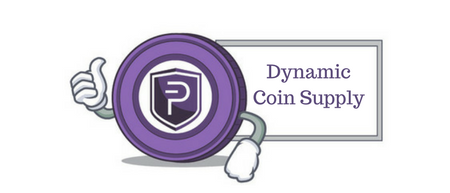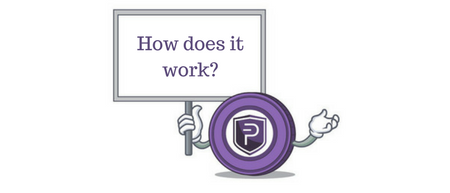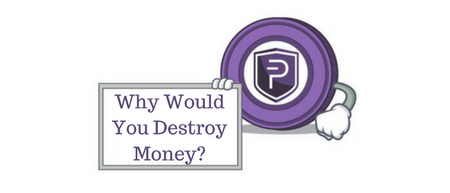
Of the many differences between cryptocurrencies and fiat currencies like dollars, euros, and yen, one stands out in particular: money supply
There is no hard limit on the supply of fiat currencies. In the United States, the Federal Reserve creates money by buying treasury bonds from banks. The European Central Bank operates in a similar fashion. In these systems, central banks develop policies for limiting the money supply to counteract inflation and influence the economy.
On the other hand, most cryptocurrency developers designed their coins to have a definite, limited supply. Bitcoin, the world's best-known cryptocurrency, operates in this way. This makes Bitcoin and the cryptocurrencies based on Bitcoin much like gold.
There is only a certain amount of gold in the world. Much in the same way miners dig gold out of the ground and introduce it to the market for profit, Bitcoin miners create new bitcoins up to a certain fixed number, at which point they are expected to operate the network in return for transaction fees.
But PIVX has a dynamic coin supply. What does that mean in the context of a cryptocurrency?
The PIVX coin supply is the result of the amount of new coins created minus the amount of money burned out of the system.
Yes, PIVX has a mechanism for destroying money – but don't be alarmed, this is a perfectly natural occurrence in any real-life economic system. It means that while the PIVX money supply system is technically unlimited, it is practically self-stabilizing.
Dynamic Coin Supply and Perpetual Emission

PIVX has no miners, so it does not have to set up a system for incentivizing them through transaction fees. With the introduction of zPoS "stealth staking", the PIVX network creates new coins at a constant rate of 6 PIV per block, allocating a certain amount to an internal treasury that keeps the network running and the rest between users.
At the same time, PIVX still charges small transaction fees. Since these fees are not going to miners or to other parties in the PIVX network, there is no incentive to make them any higher than is strictly necessary.
But what distinguishes PIVX from both fiat currencies and other cryptocurrencies is not the lack of miners – it is what happens to those transaction fees.
Because the network is already maintained through the PIVX treasury allocation of each block, the fees simply burn.
This creates a dynamic coin supply that stabilizes the overall PIVX economy. Instead of inflation making everyone's money hold less value, small parts of the system burn out to promote the value users hold.
How Does This Work?

Both setting hard coin supply limits and burning transaction fees are deflationary practices. The major difference is that developers need to set a hard coin supply limit from the start of a cryptocurrency's existence and hope to get it right by the time the coin itself matures.
With so many unknown factors at play, it's almost impossible to imagine that Satoshi Nakomoto – the alias of Bitcoin's developer(s) – could possibly predict the eventual demand market for Bitcoin. But the coin limit must be set from the very beginning to have any effect.
Transaction fee burning, however, can take place at a measured pace. It can also be adjusted to meet future market demands. Simple PIV transfers do not have a pronounced effect on the balance between coin supply and transaction fees burned. zPIV minting and SwiftX transfers do, although the impact of the effect is tempered by the transaction fee market.
Even if the system registers a single 100 PIV transaction fee, the block containing that one transaction would decrease supply – despite the fact that it is the only transaction in the block. Balancing begins when you burn the same amount of money that you mint. Coin supply is now a function of coin demand, not an arbitrary value.
Additionally, there is a difference between coin emission factors for stakers who earn coins using normal PIV or the zPIV minting process. zPIV staking is a process for maintaining anonymity while earning staking rewards. The new block reward system awards 50 percent higher sums to zPIV stakers than PIV stakers. Balancing the amount of zPIV mint transactions per second with the burn rate keeps the supply neutral.
The fact that minting new coins comes with a higher burn rate is a further hedge against inflation in a system where PIV already exists. Essentially, burning money generates a hedge against inflation without being deflationary, which only sounds like a paradox because no one in history has done it before.
Dynamic Coin Supply and Inflation – Comparing PIVX to Dollars

Most people assume that the result of the dynamic coin supply calculation (new coins - burned transaction fees) is the inflation rate of PIVX. But that is not the case. Unlike fiat currency systems, approximately 84 percent of new coins created go straight back to PIV holders.
To understand how dynamic coin supply reduces inflation, it's helpful to draw a parallel to the United States dollar.
Assuming an inflation rate of 5 percent, if you put $100 in the bank and withdraw it a year from now, it will purchase $95 worth of goods or services. While the number of dollars has not changed, the purchasing power of the currency has.
If you put 100 PIV in your wallet and withdraw it in a year, you will have 105 PIV. Thanks to the dynamic coin supply, that 105 PIV still has the same purchasing power as the original 100 PIV.
Once users begin using zPIV frequently, the value of burned transaction fees will outweigh the value of new coins created, which will make your 105 PIV have more purchasing power than the 100 PIV you originally had.
This cannot happen with fiat currency because the systematic destruction of money is not an integral part of the world's most popular currency systems. In fact, the process of destroying money is an afterthought.
Why Would You Destroy Money?

At first, this idea seems preposterous, but it makes sense within an active economic system – and it happens every day.
Nobody in their right mind would set their life savings alight in a bonfire, but value does get destroyed every day. Not only that, but the products and service you purchase with money disappear, wear out, or get thrown away.
This feature is an important element of every healthy money supply system in history. The fact that it does not exist in most cryptocurrency markets is a key oversight that may lead to instability down the road. This never happened with gold because there is still a large amount of unmined gold in the world.
However, the Bitcoin network has already reached 80 percent of its total coin supply capacity. Experts disagree about what will happen when it finally reaches 100 percent. Uncertainty and instability are likely, and the long-term results will probably become a fiduciary history lesson for future generations.
PIVX has taken a cue from the world's fiat currencies, but avoided creating a convoluted system like that of the Federal Reserve. Its dynamic coin supply is a feature of elegant simplicity that will give it the stability it needs to remain relatively involatile in the long-term. Prices will remain stable as long as users continue to use the network and create new coins.
Feel free to RESTEEM this article!
Super cool system! STEEM needs some sort of burn mechanism. I like PIVX and I’ll be taking a closer look at it moving forward! Thanks for the share! Resteem
Downvoting a post can decrease pending rewards and make it less visible. Common reasons:
Submit
interesting read. well done
Downvoting a post can decrease pending rewards and make it less visible. Common reasons:
Submit
good
Downvoting a post can decrease pending rewards and make it less visible. Common reasons:
Submit
Congratulations @ckcryptoinvest! You have completed some achievement on Steemit and have been rewarded with new badge(s) :
Click on any badge to view your own Board of Honor on SteemitBoard.
For more information about SteemitBoard, click here
If you no longer want to receive notifications, reply to this comment with the word
STOPDownvoting a post can decrease pending rewards and make it less visible. Common reasons:
Submit
Downvoting a post can decrease pending rewards and make it less visible. Common reasons:
Submit